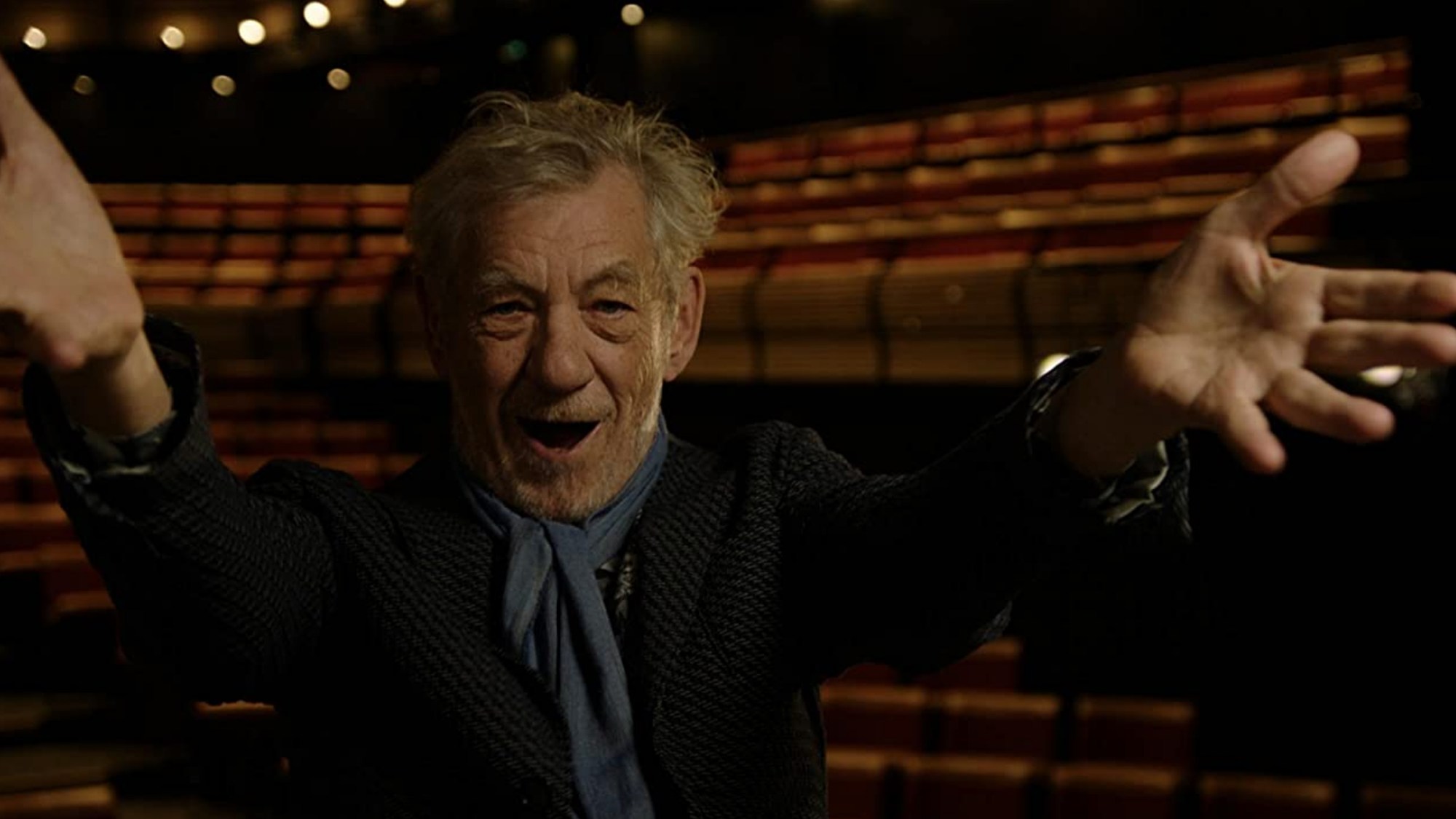
- Film
Docs: On Broadway
On March 12, 2020, all 41 theaters in the famed Broadway district of midtown Manhattan shut down because of the COVID-19 pandemic. Nearly 18 months later, with the reopening of the majority of live stage shows slated to take place starting in September and stretching into October, director Oren Jacoby’s On Broadway arrives as a perfectly timed valentine. Featuring interviews with Hugh Jackman, Ian McKellen, Helen Mirren, John Lithgow, director George C. Wolfe, and Alec Baldwin, among others, this documentary connects as both a smartly curated historical primer and a cinematic veneration of the art of live performance.
Jacoby’s movie, which premiered at the Hamptons International Film Festival and played DOC NYC, uses a tripartite structure which gives it a solid foundation, while also allowing for occasional flitting asides which reinforce some of its central themes and revelations. One portion follows the rehearsal and autumn 2018 debut of the crime comedy The Nap, directed by Daniel Sullivan and starring Alexandra Billings. The new show features a unique, centered depiction of a transgender character, Waxy Bush, whose sexuality is merely an additional, informing characteristic of the fact that she’s also a mafia boss who’s pressuring a rising star in the world of snooker (a British pub sport similar to pool) to throw a match. Arriving at a time when representation in entertainment and its attendant fields is a topic of major, ongoing discussion, this component feels especially timely. Inclusion of The Nap, however, also nicely informs an interrogation of Broadway’s shift from a local cultural market to more of a theme park/tourist sensibility, in which jukebox musicals and star-driven revival productions take up a dominant percentage of the field, squeezing out a lot of original plays and certainly experimental work.
The second, sturdiest narrative column examines the history of Broadway. This unfolds in largely chronological order, making the film quite accessible for theater newbies or agnostics. Among the most interesting topics illuminated are its formation and heyday; the plunge in attendance from 1968 to 1972; societal factors informing the great, much-discussed Time Square clean-up of subsequent years, and both the impact and unintended side effects flowing from that; the workshopping and 1975 premiere of New York Public Theater’s A Chorus Line, which would prove to be a massive hit and run for 16 years; the influx of English plays and stage talent in the early 1980s, including an eight-hour production of Nicholas Nickleby
The sparest thread – the sizzle to sell the steak, so to speak – involves interview chats with the aforementioned recognizable stars, seeded throughout the film. But even this portion yields no small amount of jewels, as when Jackman enthusiastically talks about the palpable energy experienced as a performer, with audiences leaning forward in their seats. Mirren also displays her ever-quotable bonafides when she candidly shares her neighborhood memories from when she first made her Broadway debut, saying, “It used to be brothels and strip clubs, and I loved it that way, what can I say – I work in theater, they’re my kind of people.” The easiest criticism which could realistically be leveled against On Broadway is that it’s a long-form promotional video, all rah-rah lionization. But this would ignore the movie’s deceptively simple craftsmanship. Working with editors Ted Raviv, Abhay Sofsky and Steven Wechsler, Jacoby walks a tightrope to craft a film that feels exhaustively detailed and, at a mere 85 minutes, brisk and smartly streamlined. It speaks to Jacoby’s well-balanced sense of history and pacing that his film’s surveying of the groundbreaking work of notable Broadway choreographers, composers, and playwrights – Michael Bennett, Bob Fosse, Stephen Sondheim, and August Wilson among them – feels both facile and honest, and that works like Company and Angels in America are spotlighted alongside Rent, The Lion King and Hamilton. At this still-precarious moment, of course, not everyone can safely travel to Broadway, or take in live performances. Until such a time as that’s possible, On Broadway serves as a great reminder of its history of ups and downs – its triumphs as well as its capacity for self-reinvention.